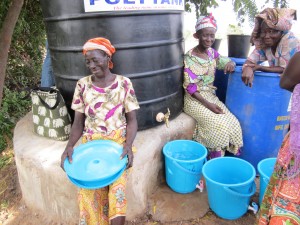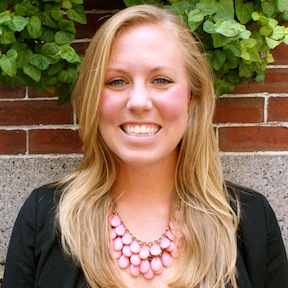 Lots of idealistic college graduates set out into their careers with the hope of making the world a better place. They bring their talents to bear on hard global problems through work in nonprofits or government, but all too often find themselves mired in bureaucracy or stymied by lack of resources.
Lots of idealistic college graduates set out into their careers with the hope of making the world a better place. They bring their talents to bear on hard global problems through work in nonprofits or government, but all too often find themselves mired in bureaucracy or stymied by lack of resources.
And yet last week I had the chance to interview someone who has inarguably made the world a better place, by harnessing the power of social enterprise.
In January 2008, Kate Clopeck was pursuing research on household water treatment in Ghana as part of a Master’s in Technology and Policy at MIT. It was there that she met fellow MIT engineering student Vanessa Green – today the CEO of local power electronics startup OnChip Power – and began plotting what would become Community Water Solutions, the nonprofit she now runs.
Clopeck and Green recognized that household water treatment – or lack thereof – wasn’t a technical problem, but rather a matter of implementation. The technologies existed to affordably treat the water; the challenge was driving adoption in Ghanian villages.
Confident they could improve upon the situation – although unsure how – the two returned to MIT and applied for a grant from MIT’s Public Service Center. They received the funds, and were back in Ghana that summer to implement a pilot project.

The idea they came upon has now been implemented in 38 communities in Ghana. Rather than trying to convince individuals to adopt water treatment practices themselves, CWS sets up locally-owned businesses in each village that treat water and sells it to the community.
It is difficult to drill wells in Ghana, so communities rely on “dugouts” which collect rainwater. The businesses that CWS sets up sell treated water next to those dugouts, so that anyone who comes to the dugout sees the option of purchasing treated water.
The businesses are owned and operated by individuals selected by the village chieftan, and in nearly every case those owners are women. CWS offers the owners financial training to ensure the sustainability of the operation.
As for its own operation, Clopeck explained that CWS has settled on a funding model based around college students and recent graduates who independently fundraise to travel to Ghana and help implement new efforts. This fall, the organization will be running a social enterprise competition through which former fellows compete to implement a new idea in the villages in which CWS has a presence.
Today, Clopeck oversees a team split between Boston and Ghana, and Green still serves on the CWS board, in addition to her role at OnChip. In their story I can’t help but draw two lessons. First, MIT’s willingness to fund an entrepreneurial experiment based on a very preliminary idea made this effort possible. Second, as hard as it may sometimes seem to find a career path that truly makes a difference, it’s far from impossible.
